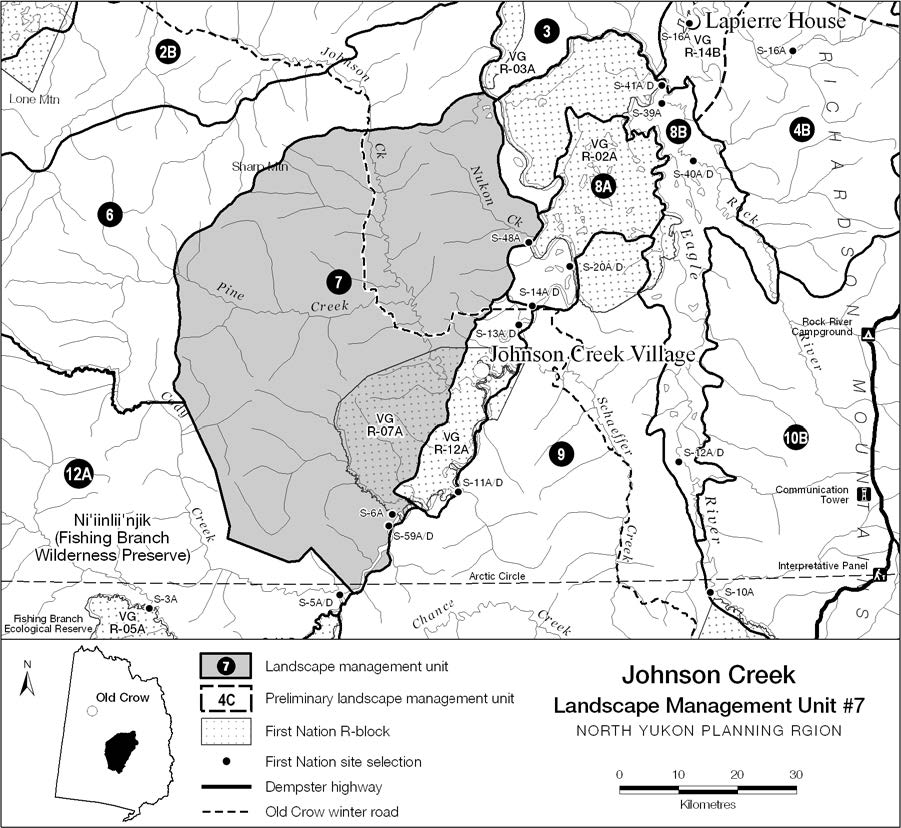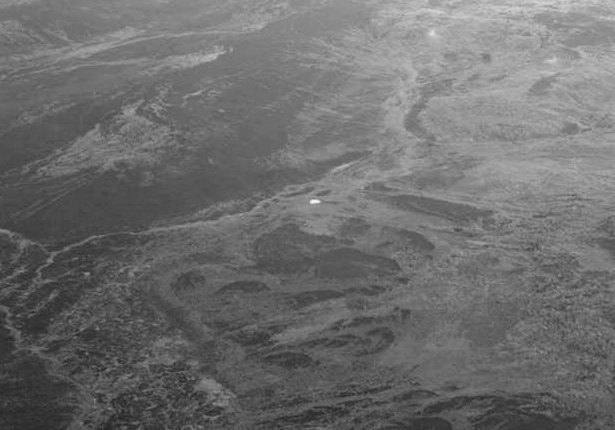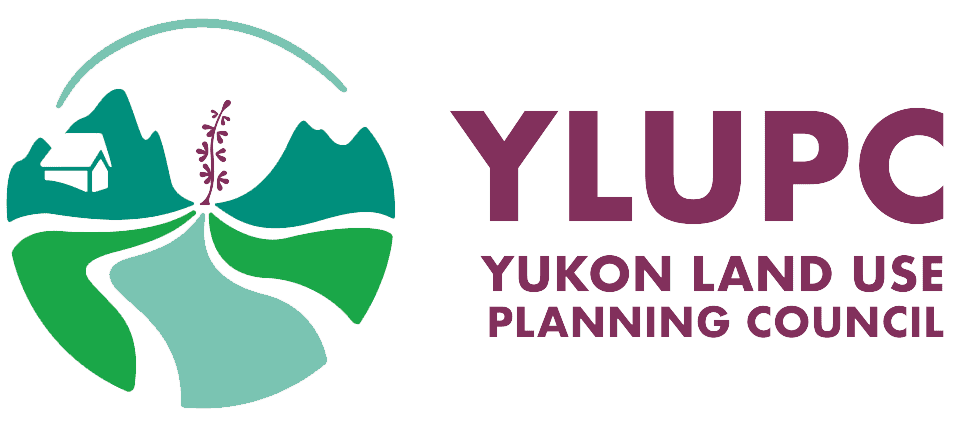NORTH YUKON PLANNING REGION:
LMU 7: Johnson Creek
Land Use Designation
Integrated Management Area, Zone IV
Land Status
Yukon public land and VGFN Settlement land (VG R-07A, S-06A, S-48A and S-59A/D)
Traditional Territories
Vuntut Gwitchin First Nation
Area
3,230 km2 (5.3% of Region)

Biophysical Setting (LMU 7)
Setting
Rolling forested plateau; transition between Eagle Plains and David Lord Range.
Ecoregions
Eagle Plains.
Bioclimatic Zones
Taiga Wooded.
Habitat Types
Low-mid elevation coniferous forest, mixed-wood and shrub; smaller amount wetland and riparian.
Watersheds
Porcupine River (Johnson, Pine, Nukon and Burnthill creeks).
Image Explanation
Extensive areas of LMU #7, Johnson Creek, were affected by wildfire during the 2004 fire season. (CWS photo)

Cumulative Effects Thresholds
Relative to LMU Size*
Surface Disturbance (%)
Linear Disturbance (km/km2)
Current disturbance (2020)
0.223
0.289
Cautionary
0.750
0.750
Critical
1.000
1.000
On the ground amounts**
Surface Disturbance (km2)
Linear Disturbance (km)
Current disturbance (2020)
7.19
932.9
Room under cautionary threshold***
17.03
1489.3
Cautionary
24.22
2422.2
Critical
32.30
3229.7
*These are proportional to the size of the LMU, and correspond to table 3-2 of the Approved Plan. They are measured in the % of the LMU that can be disturbed (“Surface Disturbance”) and in km/km2 (“Linear Disturbance Density”).
**These are amounts that can be measured and apply to the whole LMU and would be more familiar to project proponents and regulators. They are measured in km2 of disturbance and in km of linear disturbance (e.g., roads, trails and cutlines).
***How much more disturbance can be added to existing disturbance before the cautionary threshold is reached.
Amount of disturbance relative to the cautionary theshold:
%
Surface Disturbance
%
Linear Disturbance
Ecological Resources
Porcupine Caribou
Caribou concentrated use of Sharp Mountain portion of unit in two seasons – rutting and winter. Smaller areas of winter concentrated use in vicinity of Porcupine River and Whitefish Wetlands.
Moose
Significant habitats in all seasons. High quality habitat in Johnson, Pine, Nukon and Burnthill creek corridors.
Marten
Moderate - high quality winter habitat in mixed-wood river/creek valleys.
Sheep
No known sheep populations.
Fish
Identified over-wintering habitat in Porcupine River; potential over-wintering habitat in lower Johnson Creek.
Other Species
Significant grizzly bear habitat in Porcupine River valley. Significant furbearer habitat, (particularly for lynx) within major creek valleys.
Wetlands and Lakes
Porcupine River corridor and Johnson, Pine and Burnthill creek corridors contain wetlands.
Riparian Areas
Porcupine River valley and Johnson, Pine, Nukon and Burnthill creek valleys.
Major River Corridors
Porcupine River
Heritage, Social and Cultural Resources
VGFN Heritage Routes and Sites
Old Crow to Johnson Creek Village, via White Snow Mountain; Old Crow to Whitestone Village; and Whitestone Village to Johnson Creek Village.
Other Heritage and Historic Resources
Significant heritage resource values. No documented archaeological sites.
Current Community Use Areas
Multiple current use areas including Sharp Mountain, Whitesnow Mountain, Burnt Hill and Johnson Creek. Several winter trails.
Economic Development
Transportation and Access
Old Crow winter road runs along Johnson Creek valley. A conceptual access route has also been identified in this unit5.
Traditional Economy
Winter subsistence harvesting.
Tourism and Recreation
Low interests and activity (outside of Porcupine River corridor and Johnson Creek Village).
Oil and Gas Resources
High potential; unit is in the Eagle Plain oil and gas basin.
Mineral Resources
Very low - no potential.
Aggregate (Gravel) Resources
No identified resources.
Special Management Considerations
- Southwestern boundary is adjacent to Ni’iinlii’njik (Fishing Branch Wilderness Preserve).
- Existing routing of Old Crow winter road should be maintained.
- 50% of unit was burnt in 2004 fire season.
